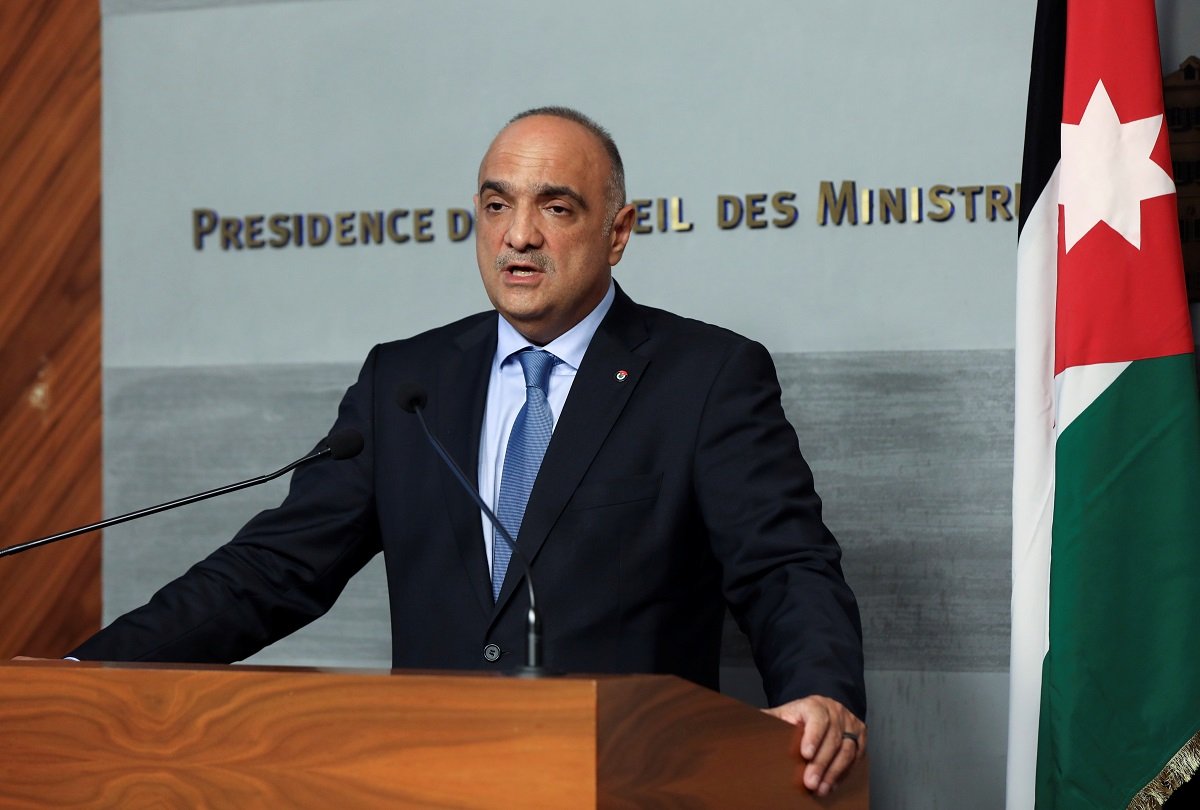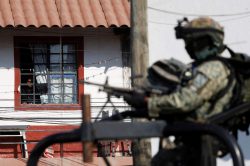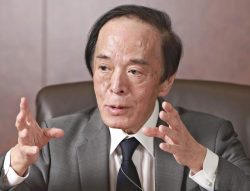
Jordanian Prime Minister Bisher al-Khasawneh speaks during a joint news conference with Lebanese Prime Minister Najib Mikati at the government palace in Beirut, Lebanon September 30, 2021.
15:42 JST, September 16, 2024
AMMAN (Reuters) – Jordan’s King Abdullah has designated key palace aide Jafar Hassan as prime minister after the government resigned on Sunday, the royal court said, days after a parliamentary election in which the Islamist opposition made some gains in the U.S.-allied kingdom.
Hassan, now head of King Abdullah’s office and a former planning minister, replaces Bisher Khasawneh, a veteran diplomat and former palace adviser who was appointed nearly four years ago, a royal court statement said.
Khasawneh will stay on in a caretaker capacity until the formation of a new cabinet, the statement said.
Harvard-educated Hassan, a widely respected technocrat, will face the challenges of mitigating the impact of the Gaza war on the kingdom’s economy, hard-hit by curbs to investment and a sharp drop in tourism
In Hassan’s appointment letter, the king said democracy should be strengthened in the country and that its economic future hinged on pushing ahead with donor-backed mega-infrastructure projects in energy and water.
The outgoing prime minister had sought to drive reforms pushed by King Abdullah to help reverse a decade of sluggish growth, hovering at around 2%, that was worsened by the pandemic and conflict in neighboring Iraq and Syria.
The traditional conservative establishment had long been blamed for obstructing a modernisation drive advocated by the Western-leaning monarch, fearing liberal reforms would erode their grip on power.
Politicians say a key task ahead is accelerating IMF-guided reforms and reining in more than $50 billion in public debt in a country with high unemployment and whose stability is supported by billions of dollars of foreign aid from Western donors.
The Muslim Brotherhood opposition and ideological allies of Palestinian militant group Hamas made significant gains in Tuesday’s election, boosted by anger over Israel’s war in Gaza.
The Islamists won 31 seats, the most since parliamentary life was revived in 1989 after decades of martial law, leaving them the largest political grouping in parliament.
In a country where anti-Israel sentiment runs high, they have led some of the largest protests in the region in support of Hamas, which their opponents say allowed them to increase their popularity.
Although the new composition of the 138-member parliament retains a pro-government majority, the more vocal Islamist-led opposition could challenge IMF-backed free-market reforms and foreign policy, diplomats and officials say.
Under Jordan’s constitution, most powers still rest with the king, who appoints governments and can dissolve parliament. The assembly can force a cabinet to resign by a vote of no confidence.
Top Articles in News Services
-

Survey Shows False Election Info Perceived as True
-

Hong Kong Ex-Publisher Jimmy Lai’s Sentence Raises International Outcry as China Defends It
-

Japan’s Nikkei Stock Average Touches 58,000 as Yen, Jgbs Rally on Election Fallout (UPDATE 1)
-

Japan’s Nikkei Stock Average Falls as US-Iran Tensions Unsettle Investors (UPDATE 1)
-

Trump Names Former Federal Reserve Governor Warsh as the Next Fed Chair, Replacing Powell
JN ACCESS RANKING
-

Producer Behind Pop Group XG Arrested for Cocaine Possession
-

Japan PM Takaichi’s Cabinet Resigns en Masse
-

Man Infected with Measles Reportedly Dined at Restaurant in Tokyo Station
-

Israeli Ambassador to Japan Speaks about Japan’s Role in the Reconstruction of Gaza
-

Videos Plagiarized, Reposted with False Subtitles Claiming ‘Ryukyu Belongs to China’; Anti-China False Information Also Posted in Japan























